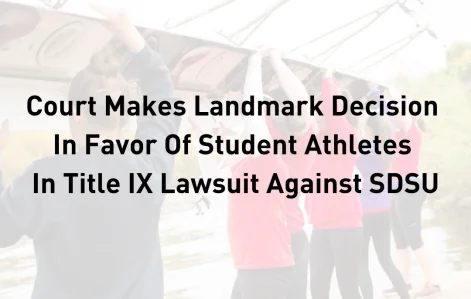California has been center stage for some of the most groundbreaking and important breakthroughs in workers’ rights. This has earned the state with a reputation as being among the most innovative and progressive states when it comes to employment law issues. This is especially the case when we look at some of the ways California has designed its own laws to push ideas and issues addressed in federal law more toward providing employees with better protections.
We can see this in a number of laws, such as the California Fair Housing and Employment Act, the Family Leave Act, the Pregnancy Leave Act, and other important statutes with federal counterparts. One such law that stands out among the rest, however, is California’s Fair Pay Act of 2015, which does even more than the Equal Pay Act of 1963 in what it provides for workers.
Starting with the older law, let’s look at both of these, in turn, to understand how California’s statute better protects employee’s fair pay.
The Equal Pay Act of 1963
An immense wave of social change in the United States came to pass during the 1960s. A year before the landmark Civil Rights Act of 1964 would pass, however, the Equal Pay Act of 1963 would become law.
It was signed into law by then-President John F. Kennedy as part of his New Frontier Program and was intended to address the widespread disparity in what men and women working in the U.S. were making at their jobs. Key to this was a mandate that someone’s sex could not be considered when determining their wages or as a reason to pay them more or less than their coworkers.
Under the Equal Pay Act of 1963, employers would be in violation of the law if three conditions were present:
- Employees of the opposite sex are paid different wages
- The employees being paid differently perform essentially the same job in terms of required effort, skill, and responsibility
- The employees being paid different are working under the same or similar working conditions
While the gender pay gap was narrowed to some degree by the Equal Pay act, a gap that was based in little more than discrimination still existed. That’s why California sought to enact its own legislation and expand upon what federal law provided.
The California Fair Pay Act of 2015
As important as the Equal Pay Act of 1963 was toward making progress that ensured equal pay for all employees regardless of sex, its effect began to stagnate in the 1990s. By the early 2010s, it became clear to California lawmakers that closing the pay gap would require intervention to close a loophole in the state’s labor code that bypassed some of the federally mandated protections in various industries and professions.
In this spirit, the California Fair Pay Act of 2015 requires the following:
- Employees cannot be paid different wages except with regard to seniority or a merit system, a variation in the quality or quantity of work, or another bona fide factor that isn’t sex, race, or ethnicity. The bona fide reason, if one is present, must be a job-related concern aligned with the company’s needs.
- Employees cannot be punished for or prohibited from discussing their rate of pay with another employee. Employers are barred from using a previous salary as the sole reason to extend an offer or not, and employers are additionally prevented from asking a candidate’s previous salary history or use external sources to determine this amount.
- Equal pay must be calculated based on the notion of “substantially similar work,” not necessarily a requirement that two employees must work in the same location.
Do You Have a Complaint?
If you are an employee who believes your rights under either the Equal Pay Act or California Fair Pact Act are being violated, turn to Haeggquist & Eck, LLP for assistance. Our lawyers have helped employees hold their employers accountable for violations of employment law. If you need help, take advantage of a free evaluation with our attorneys to learn more about our services.
Get in touch with Haeggquist & Eck, LLP by visiting us online or calling (619) 342-8000.





